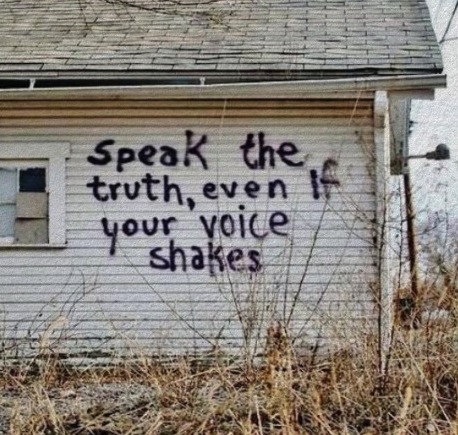My friend and mentor George Haas likes to say, “in order to be fully authentic, you have to be fully willing to be abandoned.” It’s hard to overestimate how scary authenticity can be. That thing you want to say, that perfect, unique expression that just arises, can be so terrifying to actually voice that it seems not to be an option. Maybe you rationalize your way out of it. Maybe you don’t even hear it in the first place.
Consciously or unconsciously, each one of us finds a compromise—a middle ground between utterly opaque and utterly transparent. We pare down our authenticity until the fear of abandonment can be managed. We sugar-coat and acquiesce. We keep things to ourselves and hold grudges.
Sometimes it really isn’t safe. Sometimes our trust hasn’t been earned. No one wants to reveal their wounds to a bully, asking to be victimized. But so often, we move forward into relationships driven primarily by fear. Half-seen, half-trusting. And relationships only realize half their potential.
How can I be at ease with someone when I know that they don’t know how things really are for me?
We want so desperately to be seen, so let’s risk it! Let’s learn to hold the discomfort and express our authenticity. Let’s lovingly tend to that scared part inside. It takes time, building up emotional awareness and resilience. It takes discernment and patience, sometimes moving stepwise into authenticity as a friend or companion does the same. And yes, it takes a willingness to be abandoned. Not everyone will accept this new offering. This new person who you really are. But in the vacancies, new relationships will emerge that you can fully trust. Fully value. In which you can feel fully safe.
As I see it, a spiritual life is not about escape. It’s not about isolation. It’s not about figuring out how to “go it alone.” The real spiritual warrior practices to show up in the world, in community, in relationships. In every mundane moment, effortlessly authentic. In every interaction, exquisitely kind and fearlessly complete.




